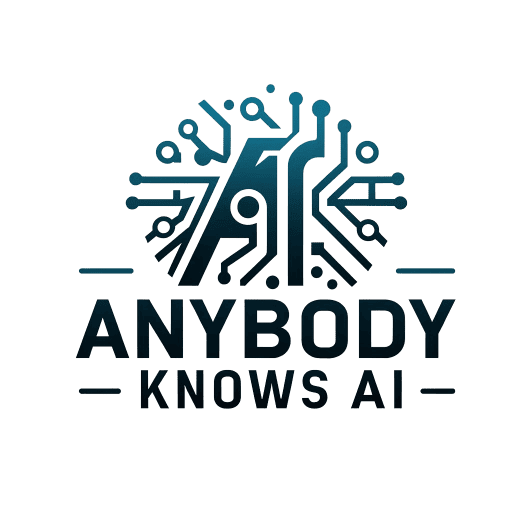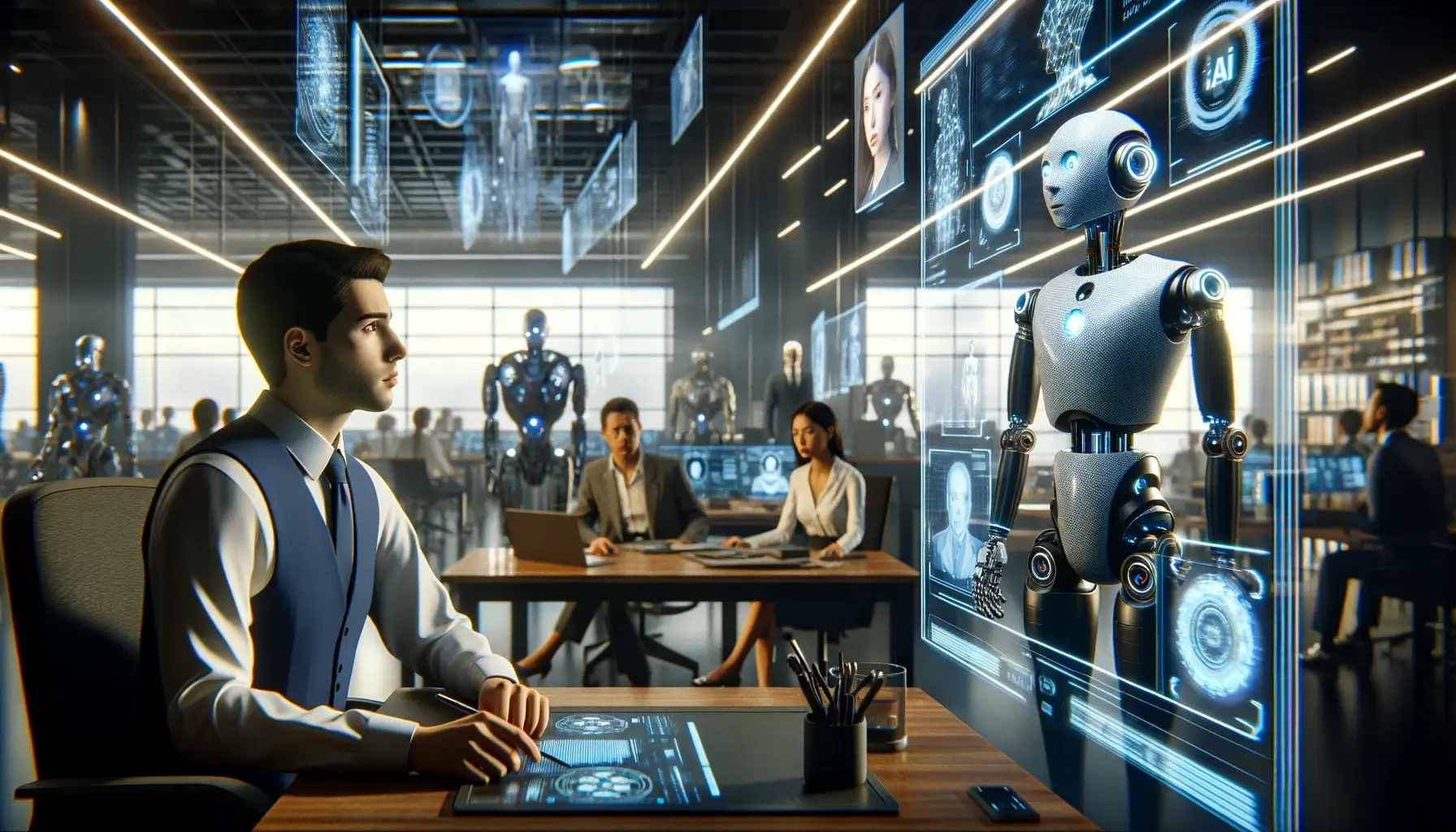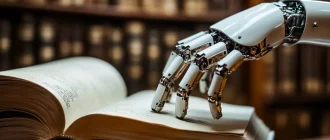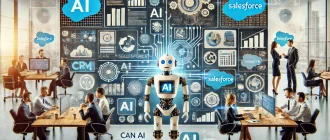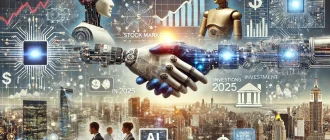As artificial intelligence advances, the question looms: which employees will AI replace by 2025? This article objectively examines which jobs will be affected and highlights the roles that may see growth thanks to AI. Understand the shift in the workforce and discover how to adapt as we decode the impact of AI on specific professions.
Key Takeaways
- By 2025, AI will have replaced up to 85 million jobs and created approximately 97 million new ones, transforming various industries and potentially boosting the global economy by $13 trillion by 2030.
- Jobs requiring human emotional intelligence, such as in education, healthcare, and legal sectors, are less likely to be replaced by AI, highlighting the continuing need for human intuition and specialized skills.
- The advent of AI demands that the workforce adapt by developing technical proficiency in AI-related fields and soft skills like emotional intelligence. At the same time, companies must embrace AI through strategic workforce planning and upskilling.
| Category | Job Types Likely to be Replaced | Job Types Less Likely to be Replaced |
|---|---|---|
| Administrative | Data entry clerks, accounting clerks, secretaries | HR specialists, administrative managers |
| Customer Service | Bank tellers, cashiers, call center agents | Customer service managers, relationship managers |
| Manufacturing | Assembly line workers, machine operators | Skilled trades (plumbers, electricians), quality inspectors |
| Financial Services | Routine data analysis, financial report generation | Financial advisors, strategic planners |
| Legal | Paralegals, legal researchers | Lawyers, legal consultants |
| Creative | Basic content creation (e.g., simple articles) | Writers, editors, creative directors |
| Technical | Basic IT support, routine coding tasks | AI specialists, data scientists, cybersecurity experts |
| Healthcare | Routine diagnostics, medical transcriptionists | Doctors, nurses, therapists |
| Logistics | Inventory management, routine logistics planning | Supply chain strategists, logistics managers |
Insights and Trends:
- High Replacement Risk: Jobs that involve routine, repetitive tasks, such as data entry clerks and assembly line workers, are at higher risk of being replaced by AI and automation (World Economic Forum) (Find Web3).
- Low Replacement Risk: Jobs that require a high degree of human interaction, emotional intelligence, and complex decision-making, such as therapists, HR specialists, and creative directors, are less likely to be replaced (BuiltIn).
- New Job Creation: The rise of AI is expected to create new job categories, particularly in the tech and green sectors. AI specialists, data scientists, and sustainability professionals are expected to see significant job growth (World Economic Forum).
- Reskilling Needs: Nearly half of the workforce must reskill to stay relevant. Analytical thinking, creativity, and technological literacy skills will be in high demand.
The transformation brought by AI underscores the need for proactive reskilling and upskilling efforts to prepare the workforce for these changes.
Governments and companies will need to invest in education and training programs to help workers transition into new roles and ensure a more inclusive future of work.
The AI Revolution and Job Displacement by 2025
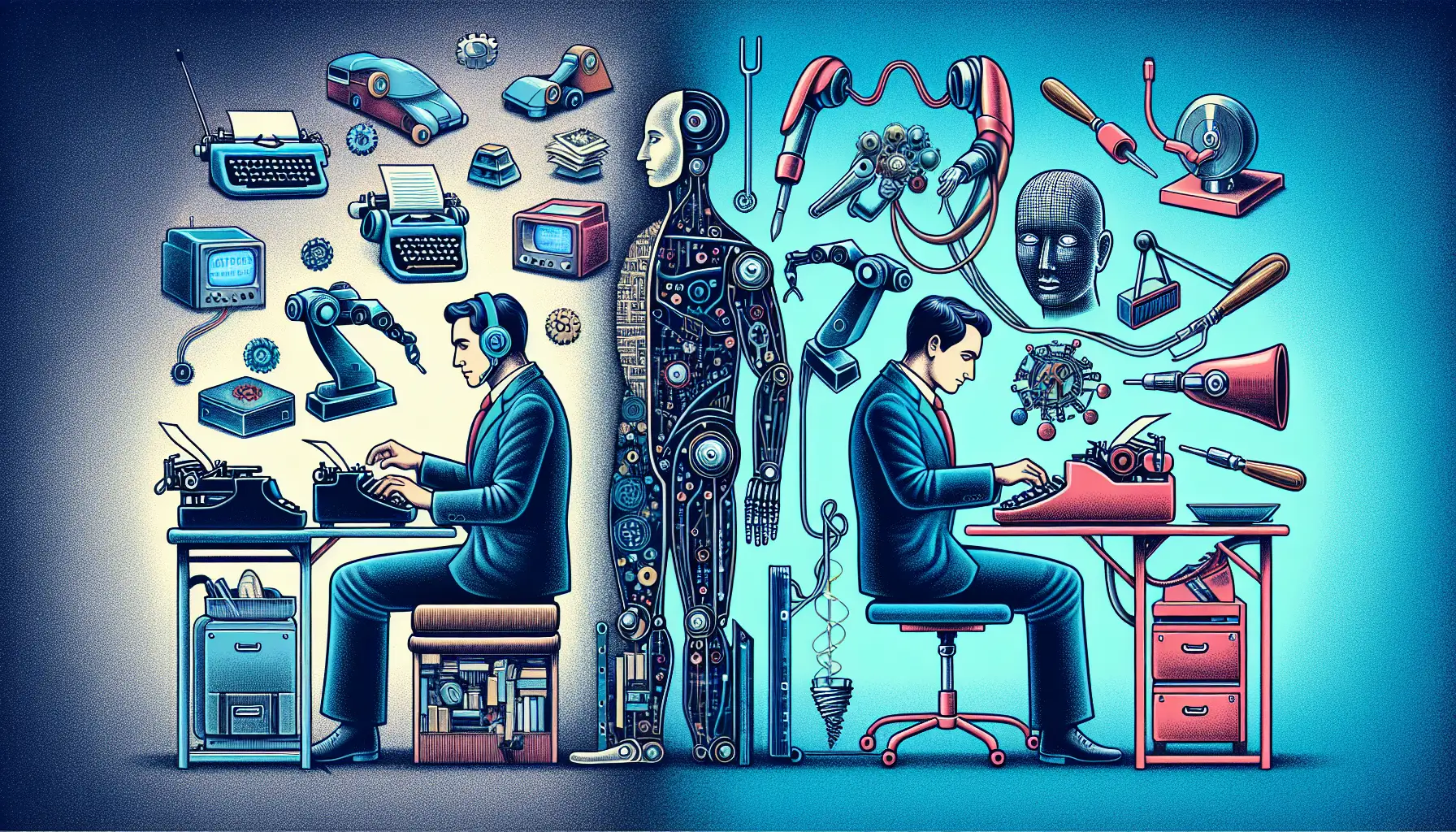
As the clock ticks towards 2025, the AI revolution is poised to redefine the job market. While artificial intelligence is expected to replace up to 85 million jobs worldwide, it’s not merely a harbinger of job loss but also a creator of job opportunities, with 97 million new jobs expected to emerge.
This duality of job losses heralds a complex future where the generative power of AI reshapes industries, driving the global economy towards a staggering $13 trillion boost by 2030. So, how many jobs will be affected in total? The answer lies in the balance between jobs lost and created.
What number of positions will AI replace jobs in this dynamic job market, and which areas will technological advancements not create jobs in new professional avenues?
The Frontline of Automation: Customer Service Roles
AI technologies are profoundly transforming customer service roles by assuming routine tasks that were once human responsibilities. Imagine virtual assistants and chatbots tirelessly addressing inquiries and managing calls with robotic precision.
These AI tools not only offer 24/7 support but also learn from customer interactions, leading to more personalized services over time.
Yet, despite this automation, the need for human workers is far from obsolete, especially when it comes to complex problem-solving and providing that invaluable human touch beyond repetitive tasks.
Driving into the Future: The Impact on Transport Jobs
Facing an autonomous future, the transport sector sees truck drivers and couriers feeling the pressure as AI begins to influence their job roles. Self-driving vehicles and robotic couriers promise unmatched efficiency, posing a significant threat to job security in this field. Yet, as the World Economic Forum suggests, every technological advance opens the door to new jobs and career paths.
What proportion of these workers will adapt to roles that involve managing and maintaining the disruptive technologies that threaten their traditional occupations?
The Code Conundrum: Software Development and AI
AI presents both challenges and opportunities within the domain of software development. It automates the mundane yet demands new skills for the evolving challenges of code creation. While generative AI tools accelerate the coding process, they simultaneously necessitate a breed of highly adaptable software developers capable of critical thinking and problem-solving beyond AI’s capabilities.
As AI creeps into entry-level programming jobs, it also paves the way for fresh roles like ‘prompt engineers,’ signifying an expansion rather than a contraction of the job market for the tech-savvy.
The Human Factor: Jobs Resistant to AI Takeover
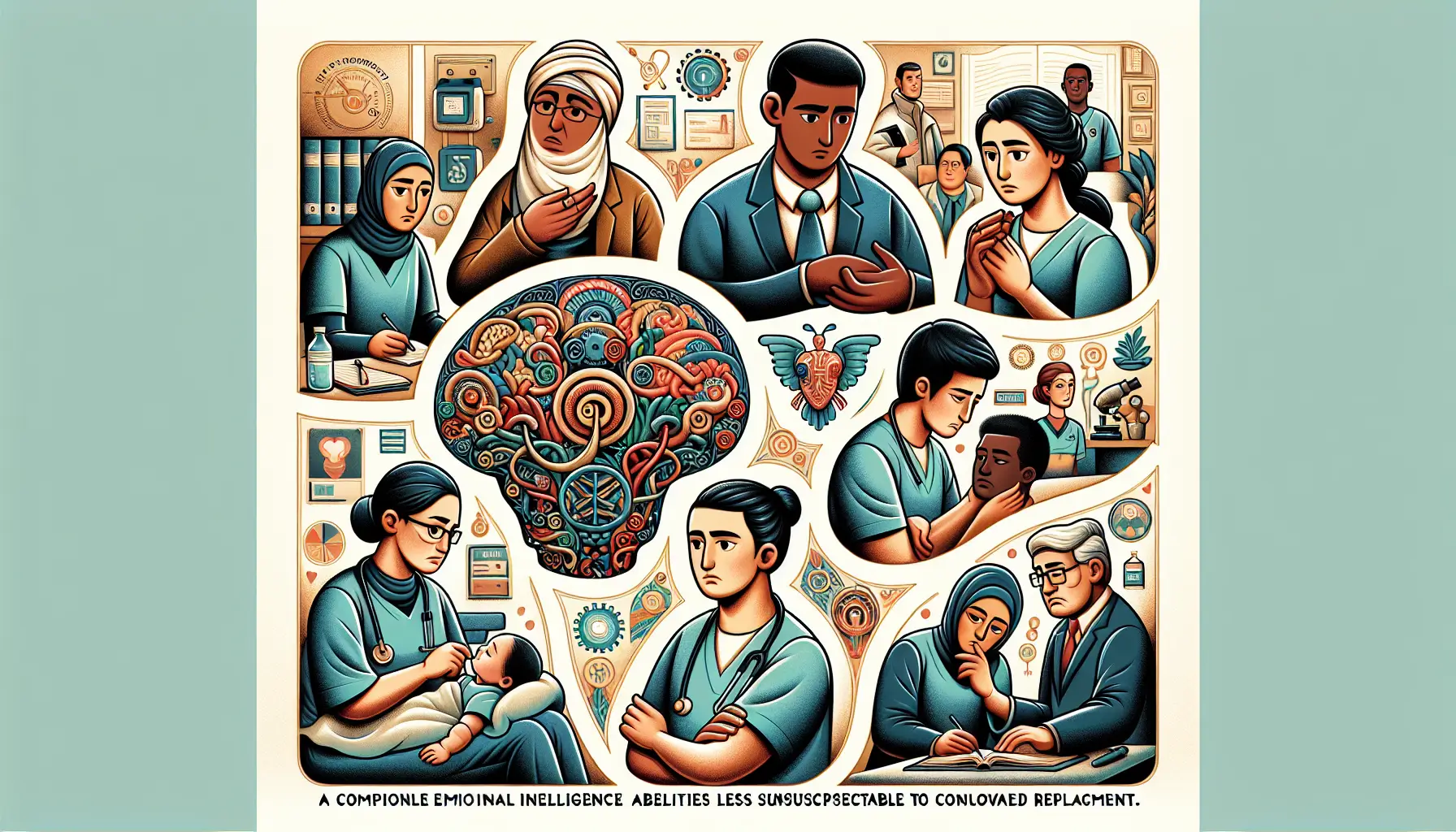
Despite the upheaval, jobs that require high emotional intelligence and human interactions offer a sense of security. Professions that thrive on the human factor, from teachers to social workers, are less susceptible to being replaced by AI.
These roles demand a blend of complex problem-solving, nuanced communication, and a deep understanding of human emotions – qualities AI has yet to master at least half of.
Which particular jobs can leverage human intuition as a shield against AI disruption, and how do they distinguish themselves in the changing job market?
The Indispensable Educator

Human teachers embody the irreplaceable essence of education, inspiring students and fostering critical thinking and lifelong learning. Their ability to build trust, manage classroom dynamics, and tailor learning experiences to individual needs exemplifies the human touch that AI cannot replicate.
Despite the emergence of online learning platforms, educators are secure due to their distinctive ability to handle classroom emotional and social dynamics.
The Empathy of Healthcare Workers

In the corridors of healthcare, the human touch prevails as AI’s capabilities fall short of replicating the empathy and judgment of healthcare workers. Nurses and therapists, for instance, are preferred for their ability to comfort patients and navigate sensitive conversations – tasks that require both human judgment and assistance that AI lacks.
Although AI can augment medical diagnoses, the intrinsic need for human interactions in healthcare fortifies the position of AI replacing these professionals.
Navigating Legal Nuances: Why Lawyers Stay Relevant
In the legal industry, lawyers wield skills that defy automation. Their expertise includes:
- Crafting arguments
- Strategizing around complex legal systems
- Negotiation
- Courtroom defense
While AI technology significantly streamlines tasks such as document analysis, it lacks the emotional intelligence necessary for these nuanced skills.
Thus, despite the automation of routine tasks, the legal profession of AI systems remains largely impervious to replacement by AI.
Evolving Workplaces: How AI Creates More Jobs Than It Replaces
The AI revolution transcends job displacement, catalyzing job creation and envisaging a transforming workplace teeming with new specialized roles. From the analytical prowess of machine learning engineers to the critical oversight of artificial intelligence by AI ethics specialists, jobs AI is seeding the job market with opportunities.
This burgeoning sector likened to the effects of the Industrial Revolution, is the AI technology set to revolutionize how we work, learn, and interact with technology.
Mastering AI: Essential Skills for the Near Future
In an AI-saturated job market, the mastery of both technical and soft skills is paramount. Tomorrow’s workforce must be proficient in:
- AI technologies
- Emotional intelligence
- Collaboration and communication across disciplines
- Machine learning
- Natural language processing
- Data analysis
As we gaze into the foreseeable future, a deep understanding of these skills becomes as crucial as the ability to adapt to the ever-changing technological landscape.
Which fields of expertise will bear the most impact, and which new skills will become indispensable?
From Data Entry to Data Strategy
Data analysts, including market research analysts, are experiencing a transition from simple data entry tasks to the strategic usage of data in decision-making processes. As AI automates the routine, these professionals are called upon to interpret and leverage data to guide business strategies and drive growth.
The demand for individuals who can navigate the complexities of data to uncover insights and inform action is rising while AI matures.
Marketing in the Age of AI
AI is reshaping marketing, a field traditionally shaped by human creativity and intuition. Generative AI tools like Jasper are taking over tasks such as content creation and optimization for search engines, heralding a new era for digital marketers.
Yet, human marketers remain indispensable for understanding market trends, predicting customer needs, and aligning company strategies with consumer expectations.
As AI technologies evolve, the role of marketing professionals is not diminished but transformed.
The Personal Touch in HR
AI enriches the roles of human resource managers by streamlining processes such work tasks such as application screening and candidate selection. However, AI falls short regarding the nuanced interactions and emotional intelligence required for dealing with sensitive employee matters.
The human factor in HR is thus indispensable, with managers playing a pivotal role in fostering a supportive and productive work environment.
Preparing for Transition: Upskilling and Reskilling Strategies
A transition towards an AI-driven workforce requires the implementation of proactive upskilling and reskilling strategies. As AI redefines roles, workers must be prepared to embrace new career paths and learn the necessary skills to thrive in the evolving job market.
Organizations increasingly rely on AI to personalize learning experiences and pinpoint skill gaps, fostering a culture of continuous learning and adaptation.
AI’s Impact Across Sectors.
Far from being confined to the tech sector, AI’s influence permeates various industries, including agriculture, healthcare, and journalism. In each domain, AI revolutionizes processes, enhances efficiency, and creates new growth opportunities.
From precision farming to real-time flight data analysis, AI’s impact is widespread, driving innovation and reshaping the job market.
Manufacturing Processes Transformed
AI and automation have significantly transformed manufacturing, with robots augmenting production capabilities and streamlining processes. As technology advances, the sector is projected to see a further displacement of jobs and the creation of new roles that require a deeper understanding of new technology and its applications.
Retail Reinvented
AI is metamorphosing retail by introducing self-checkout stations and personalized shopping experiences. While this may reduce the need for traditional sales roles, it also presents opportunities for professionals adept at navigating market trends and new technology.
Embracing the Inevitable: Companies Adapting to AI
To succeed in an AI-driven world, companies must cultivate an environment that encourages collaboration between human employees and AI technologies. Powered by AI-driven analytics, strategic workforce planning is key to aligning the workforce with business goals and identifying skills gaps.
By embracing AI, companies can improve operational efficiency, spur innovation, and drive productivity.
Summary
The AI revolution is reshaping the job market, creating challenges and opportunities. As some jobs become vulnerable to automation, new roles emerge, demanding a workforce that is adaptable, skilled, and ready to collaborate with AI. The key takeaway is not to fear AI but to embrace it, leveraging its capabilities to enhance our work and drive innovation.
Frequently Asked Questions
Will AI replace all customer service jobs?
AI will not replace all customer service jobs as complex interactions and personalized customer service representatives still require the human touch.
How will AI impact educators and healthcare workers?
AI is unlikely to replace educators and healthcare workers because of the need for emotional intelligence and human interaction, which AI cannot replicate. Instead, it will augment their work by providing support and insights.
Can AI create more jobs than it replaces?
AI is expected to create millions of new specialized job roles, leading to a net gain in employment opportunities. This brings a positive outlook for job creation with the advent of AI.
What skills are essential for the AI-driven future?
To thrive in the AI-driven future, essential skills include problem-solving, collaboration, communication, adaptability, and technical AI knowledge. Embracing these skills will be crucial for success.
How can companies adapt to the integration of AI in the workforce?
To adapt to the integration of AI, companies should foster a collaborative environment, invest in strategic workforce planning, and emphasize continuous learning and skill development. This will help them embrace AI seamlessly in the workforce.
